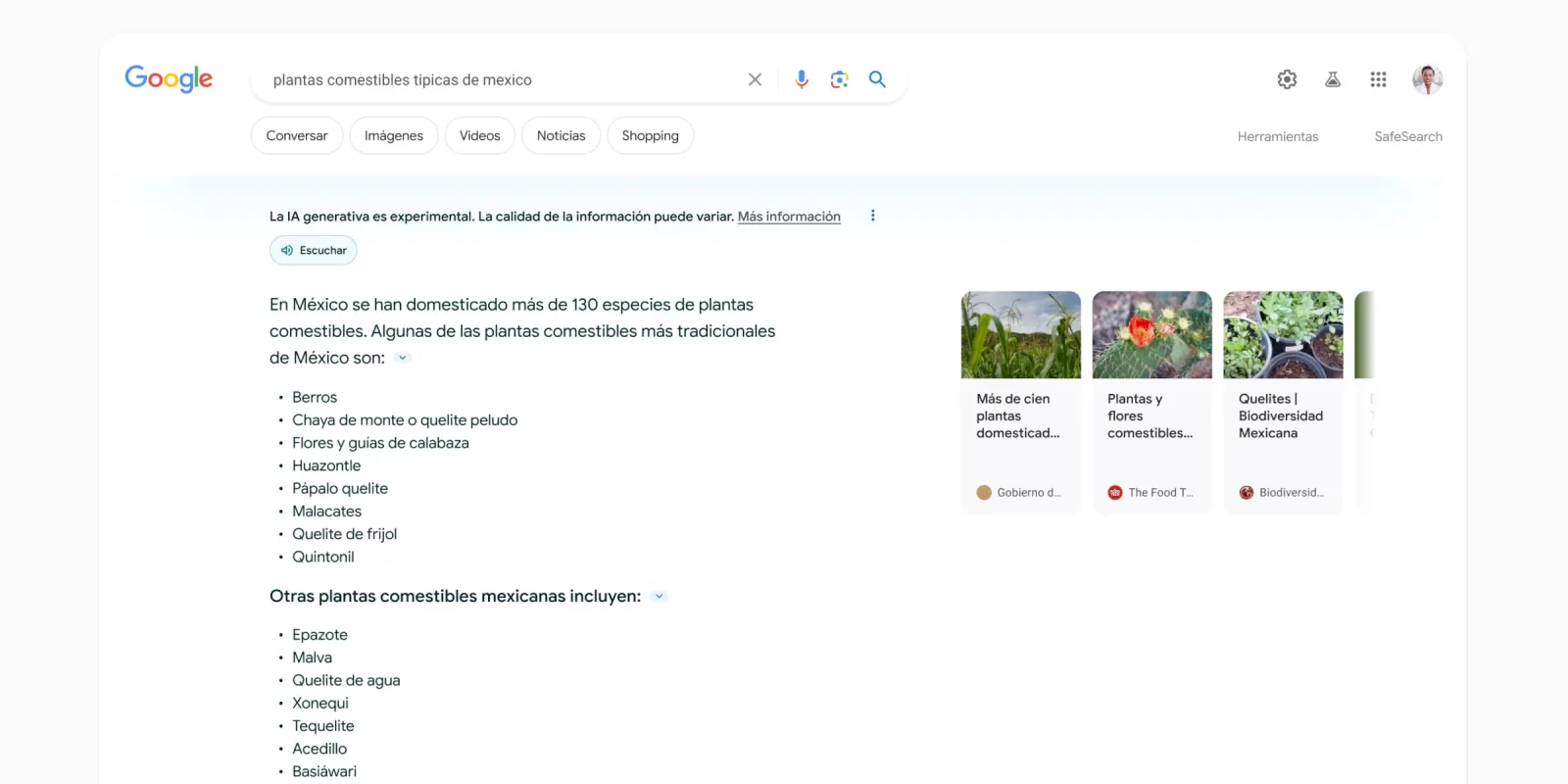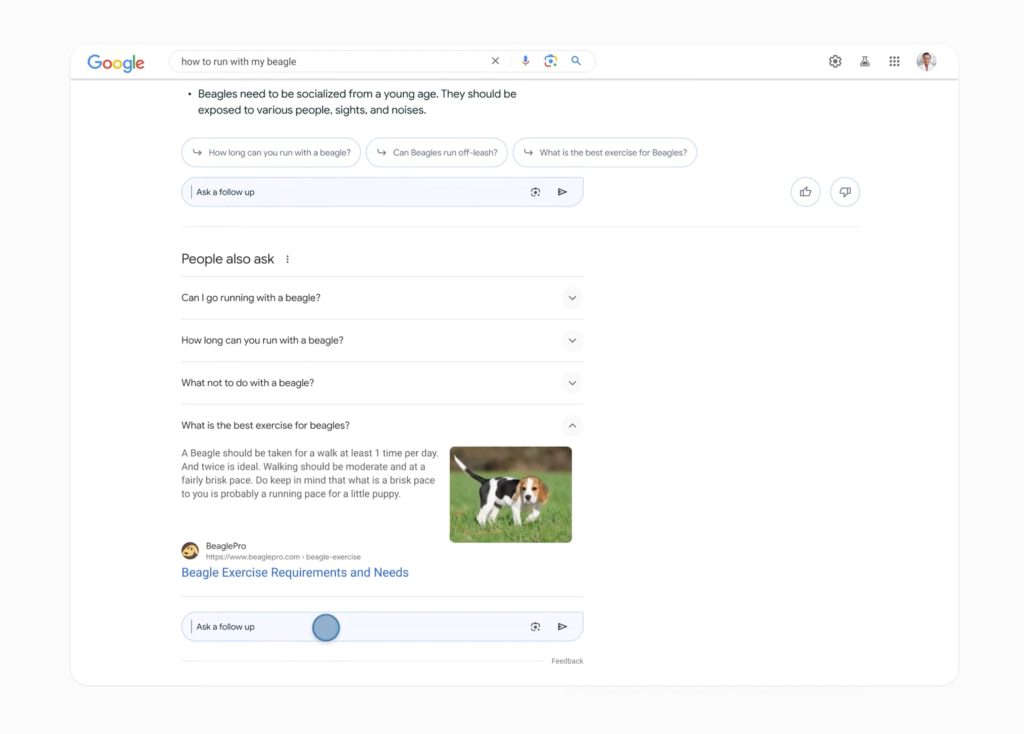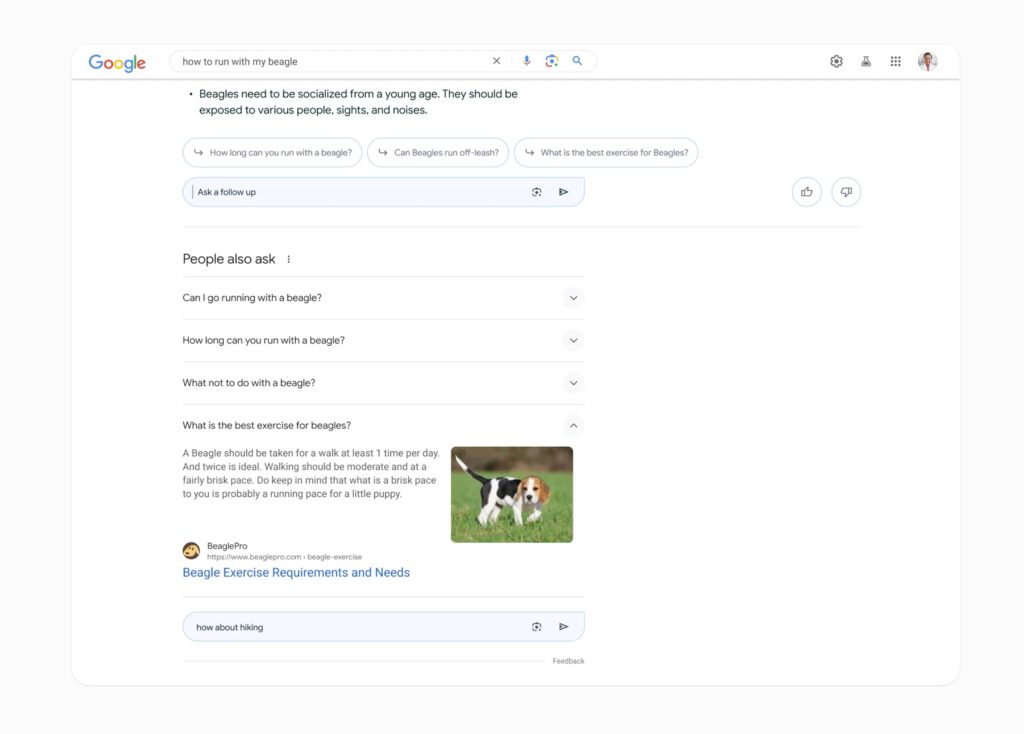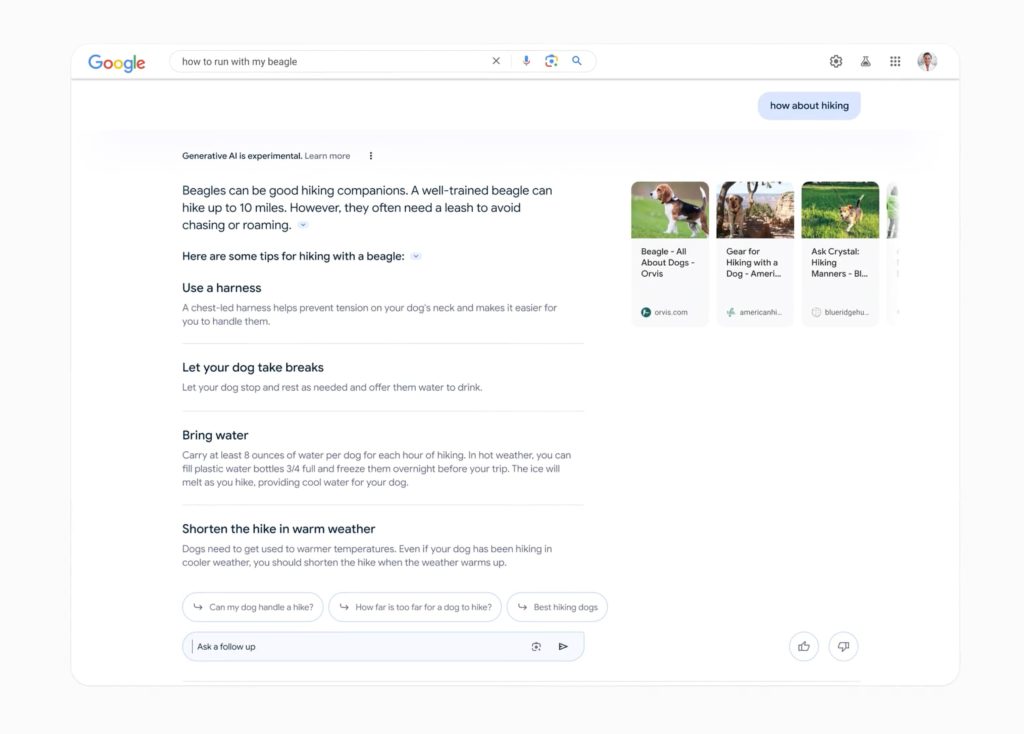
The Google Search Generative Experience (SGE) is getting a huge international expansion in over 120 new countries and territories and a handful of new generative AI-powered features.
At the moment, SGE is available in the US, India, and Japan. It’s now coming to over 120 countries and territories in Latin and South America, sub-Saharan Africa, and Asia Pacific. The full list is below, and availability by signing up through Search Labs is rolling out now in desktop Chrome. Mobile support will go live over the coming weeks.
Similarly, SGE now supports Indonesian, Korean, Portuguese, and Spanish. This joins English, Hindi, and Japanese with all SGE users able to use these seven languages.
In terms of new features, SGE is experimenting with the ability to ask follow-up questions directly from the result page. In the example below, “As a follow up” appears underneath the “People also ask” section.
Maybe you searched for “how to run with my beagle” and now you want to ask “how about hiking.” Just tap to enter your question and let your curiosity lead the way. This update will start to roll out over the coming weeks, starting first in English in the United States, and we will continue to iterate on this experience.
Google is also leveraging generative AI to improve translations by underlining words in phrases that have “more than one possible meaning.” This is rolling out soon in the US for English-to-Spanish translations before broader availability.
Tap any of those words and you can indicate the specific meaning that reflects what you want to say. This option may also appear when you need to specify the gender for a particular word.
Lastly, SGE is bringing interactive definitions for educational topics like science, economics, and history to coding and health information. Hover over highlighted words to see their definition and related imagery.
This update is rolling out over the next month, in English in the United States, with more countries and languages expected to follow soon.
| American Samoa | Gabon | Northern Mariana Islands | United States Minor Outlying Islands |
| Angola | Gambia | Pakistan | Uruguay |
| Antigua and Barbuda | Ghana | Palau | Uzbekistan |
| Bahamas | Grenada | Panama | Vanuatu |
| Bangladesh | Guadeloupe | Papua New Guinea | Venezuela |
| Barbados | Guam | Paraguay | Vietnam |
| Belize | Guatemala | Peru | Western Sahara |
| Benin | Guinea | Philippines | Zambia |
| Bhutan | Guinea-Bissau | Puerto Rico | Zimbabwe |
| Bolivia | Guyana | Rwanda | |
| Botswana | Haiti | Saint Kitts and Nevis | |
| Brazil | Honduras | Saint Lucia | |
| Brunei | Indonesia | Saint Vincent and the Grenadines | |
| Burkina Faso | Jamaica | Samoa | |
| Burundi | Kenya | São Tomé and Príncipe | |
| Cambodia | Kiribati | Senegal | |
| Cameroon | Kyrgyzstan | Seychelles | |
| Cape Verde | Laos | Sierra Leone | |
| Central African Republic | Lesotho | Singapore | |
| Chad | Liberia | Solomon Islands | |
| Chile | Madagascar | Somalia | |
| Malawi | South Africa | ||
| Malaysia | South Korea | ||
| Colombia | Maldives | South Sudan | |
| Comoros | Mali | Sri Lanka | |
| Congo [DRC] | Marshall Islands | Suriname | |
| Congo [Republic] | Mauritius | Taiwan | |
| Cook Islands | Mexico | Tajikistan | |
| Costa Rica | Micronesia | Tanzania | |
| Côte d’Ivoire | Mongolia | Thailand | |
| Dominica | Mozambique | Timor-Leste | |
| Dominican Republic | Myanmar | Togo | |
| Ecuador | Namibia | Tokelau | |
| El Salvador | Nauru | Tonga | |
| Equatorial Guinea | Nepal | Trinidad and Tobago | |
| Eritrea | New Zealand | Turkmenistan | |
| Eswatini | Nicaragua | ||
| Ethiopia | Niger | Tuvalu | |
| Fiji | Nigeria | U.S. Virgin Islands | |
| French Guiana | Niue | Uganda |
FTC: We use income earning auto affiliate links. More.







Comments